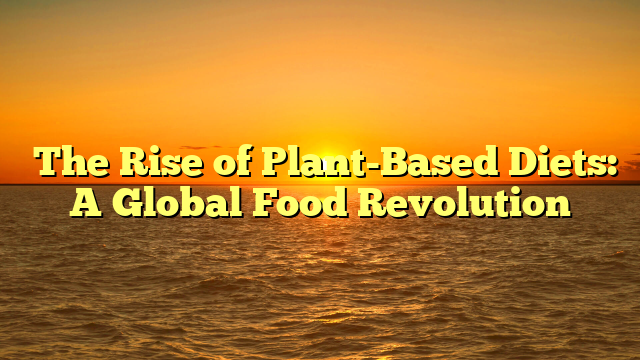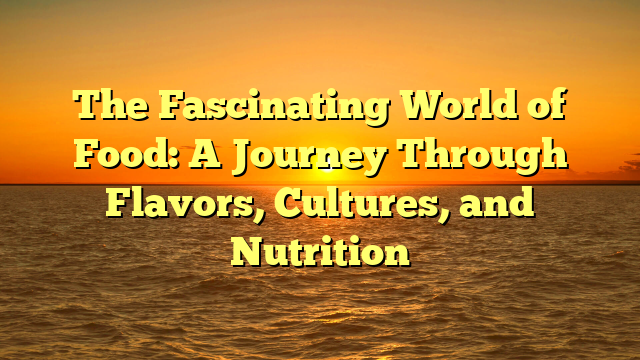
In recent years, plant-based diets have gained immense popularity worldwide. More people are choosing to reduce or eliminate animal products in favor of plant-based alternatives for health, environmental, and ethical reasons. Restaurants, supermarkets, and food companies are responding to this trend by offering a wider range of plant-based options, from meat substitutes to dairy-free products.
But what exactly is slot deposit 25 bonus 25 -based diet? How does it benefit our health and the planet? And what challenges do people face when making the switch? This article explores the growing movement of plant-based eating and its impact on global food culture.
What Is a Plant-Based Diet?
A plant-based diet focuses on consuming foods that come primarily from plants, including:
● Fruits and vegetables
● Whole grains (such as rice, quinoa, and oats)
● Legumes (beans, lentils, and chickpeas)
● Nuts and seeds
● Plant-based proteins (tofu, tempeh, seitan, and plant-based meat substitutes)
There are different types of plant-based diets, including:
● Vegan: No animal products at all, including meat, dairy, eggs, and honey.
● Vegetarian: Avoids meat but may include dairy and eggs.
● Flexitarian: Primarily plant-based but allows occasional consumption of animal products.
● Pescatarian: Avoids meat but includes fish and seafood.
The key idea behind a plant-based diet is to focus on whole, minimally processed foods while reducing or eliminating animal products.
Why Are Plant-Based Diets Becoming Popular?
Several factors are driving the shift toward plant-based eating:
1. Health Benefits
Many studies have shown that plant-based diets can improve overall health. Some key benefits include:
● Lower risk of heart disease: Plant-based diets are rich in fiber and low in saturated fat, which helps reduce cholesterol and blood pressure.
● Weight management: Eating more plant-based foods can help with weight loss and maintaining a healthy weight.
● Reduced risk of chronic diseases: Research suggests that plant-based diets can lower the risk of type 2 diabetes, cancer, and other illnesses.
● Better digestion: High-fiber foods like fruits, vegetables, and legumes promote gut health and digestion.
2. Environmental Impact
The production of animal products has a significant impact on the environment. A plant-based diet helps reduce:
● Greenhouse gas emissions: Livestock farming contributes to methane and carbon dioxide emissions, major contributors to climate change.
● Deforestation: Forests are cleared for livestock grazing and animal feed crops, leading to habitat destruction.
● Water consumption: Raising animals requires much more water than growing crops. For example, producing one pound of beef requires about 1,800 gallons of water, while one pound of potatoes requires only 30 gallons.
By choosing plant-based foods, individuals can reduce their carbon footprint and contribute to a more sustainable planet.
3. Ethical Considerations
Many people switch to plant-based diets due to concerns about animal welfare. Factory farming practices often involve overcrowded conditions, inhumane treatment, and unnecessary suffering for animals. By adopting a plant-based lifestyle, individuals can take a stand against these practices and support more ethical food choices.
4. Accessibility of Plant-Based Options
Plant-based diets are becoming easier to follow due to the increasing availability of plant-based alternatives. Many food companies are creating innovative products, such as:
● Plant-based burgers (e.g., Beyond Meat, Impossible Burger)
● Dairy-free milk (e.g., almond milk, oat milk, soy milk)
● Meat substitutes (e.g., jackfruit, tofu, tempeh, seitan)
● Vegan cheese, yogurt, and ice cream
These options make it easier for people to transition to a plant-based lifestyle without feeling restricted.
Challenges of Adopting a Plant-Based Diet
While plant-based eating has many benefits, some challenges come with making the switch:
1. Nutrient Deficiencies
A poorly planned plant-based diet may lead to deficiencies in essential nutrients such as:
● Vitamin B12 (found mainly in animal products)
● Iron (found in meat, but also in lentils, spinach, and nuts)
● Protein (plant sources include beans, lentils, tofu, and quinoa)
● Omega-3 fatty acids (found in fish, but also in chia seeds, flaxseeds, and walnuts)
To prevent deficiencies, plant-based eaters need to ensure they get enough nutrients from diverse food sources or supplements.
2. Social and Cultural Barriers
In many cultures, meat plays a central role in traditional meals, making it difficult to adopt a plant-based diet. Family gatherings, holidays, and social events may not always offer plant-based options, which can be challenging for those trying to make the transition.
3. Cost of Some Plant-Based Products
While whole plant-based foods like beans and grains are often affordable, some plant-based alternatives (such as meat substitutes and dairy-free cheese) can be expensive. However, as demand increases, prices are expected to become more competitive.
4. Learning New Cooking Techniques
Switching to a plant-based diet often requires learning new recipes and cooking methods. People may need to explore plant-based protein sources, experiment with spices, and find creative ways to make meals satisfying without meat or dairy.
Tips for Transitioning to a Plant-Based Diet
If you’re considering adopting a plant-based diet, here are some helpful tips:
● Start gradually: You don’t have to go completely plant-based overnight. Begin by incorporating more plant-based meals into your diet and gradually reducing animal products.
● Experiment with new recipes: Try different plant-based dishes and cuisines to keep meals exciting. Indian, Mediterranean, and Asian cuisines offer many delicious plant-based options.
● Plan balanced meals: Ensure you get enough protein, iron, and other essential nutrients by eating a variety of whole foods.
● Find plant-based alternatives: If you love burgers, cheese, or ice cream, try plant-based versions to make the transition easier.
● Stay informed: Read nutrition labels and educate yourself about plant-based nutrition to make healthier choices.
● Join a community: Connect with others who follow plant-based diets for support, recipe ideas, and inspiration.
The Future of Plant-Based Eating
As more people recognize the benefits of plant-based diets, the trend is expected to continue growing. Food technology is rapidly evolving, creating new and exciting plant-based alternatives that taste and feel like traditional meat and dairy products. Restaurants and fast-food chains are also expanding their plant-based menus to cater to the rising demand.
Governments and health organizations worldwide are beginning to promote plant-based diets for their positive effects on health and sustainability. Some cities and institutions are even implementing “Meatless Mondays” to encourage people to eat more plant-based meals.
Conclusion
The rise of plant-based diets is more than just a trend—it’s a movement towards a healthier, more sustainable, and ethical way of eating. While there are challenges in making the transition, the benefits for personal health, the environment, and animal welfare make it a worthwhile choice.
Whether you’re interested in going fully plant-based or just want to incorporate more plant-based meals into your diet, every small step can make a big difference. As the world moves towards more sustainable eating habits, plant-based diets will continue to shape the future of food.




